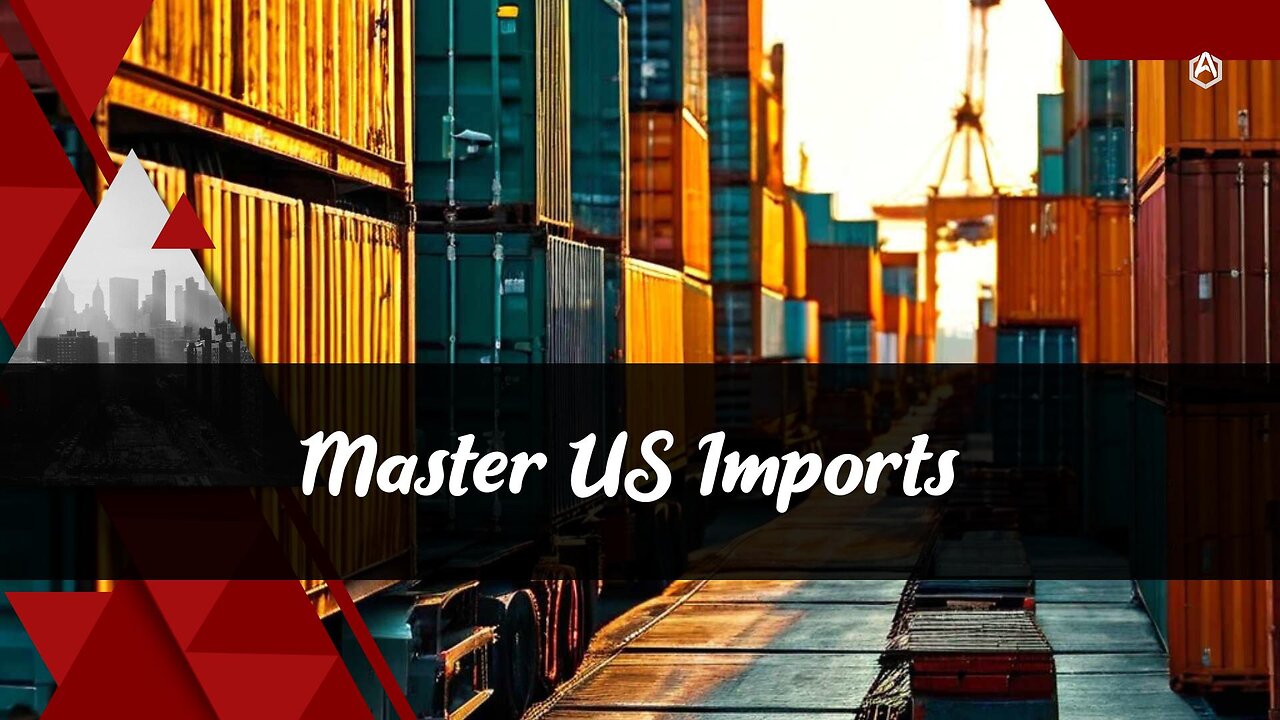Premium Only Content

Mastering ISF, RLF, and Customs Bonds: Your Guide to Successful Imports
License To Import // 323-578-6432 // file@licensetoimport.com // www.licensetoimport.com
In today's video, we discussed the Importer Security Filing (ISF) and Remote Location Filing (RLF) in the context of customs brokerage. The ISF is a mandatory requirement by the US Customs and Border Protection for all ocean shipments entering the United States. It aims to provide advance information about incoming cargo to enhance border security and facilitate trade. The ISF must be filed at least 24 hours before the vessel's departure and includes important information about the imported goods and security-related details.
On the other hand, RLF allows importers and customs brokers to electronically file customs entry information at a location other than the port of arrival. This streamlines the customs clearance process by eliminating the need to physically visit the port. Importers can submit customs documents, duties, and fees at a designated remote location, providing convenience and saving time.
To ensure compliance with ISF and RLF requirements, we provided a compliance checklist for importers, including gathering accurate information, timely filing of the ISF, ensuring accuracy in filings, maintaining records, and considering RLF if it suits their business needs.
We also mentioned the importance of customs bonds, which serve as financial guarantees for compliance with customs regulations and payment of duties and taxes. Importers have the option of choosing between a continuous bond and a single-entry bond, based on the frequency and volume of their imports.
Lastly, we highlighted the role of customs brokers in assisting importers with customs regulations. Customs brokers act as intermediaries, ensuring compliance, handling paperwork, filing forms, calculating duties and taxes, and providing expert advice.
Partnering with a licensed customs broker can simplify the import process, ensure compliance with regulations, and keep the trade flowing smoothly. We concluded by reminding viewers to stay informed, compliant, and keep an eye out for future videos discussing various aspects of customs brokerage and international trade.
#usimportbond #isfcustomsbroker #uscustomsclearing #isfentry
Video Disclaimer Here: This video is solely for education and is not endorsed by any US government agency.
01:08 Importer Security Filing (ISF) is a mandatory requirement by U.S. Customs for all ocean shipments entering the United States, filed at least 24 hours before vessel departure, containing vital information about the imported goods and security details.
01:32 Remote Location Filing (RLF) allows electronic customs entry filing at a location other than the port of arrival, offering convenience and flexibility in the import process by streamlining customs clearance and saving time and effort.
02:05 Compliance checklist for ISF and RLF includes gathering accurate shipment information, timely filing, ensuring accuracy to avoid penalties, maintaining records, and utilizing RLF for simplifying customs clearance if suitable for business needs.
03:42 Customs bonds serve as financial guarantees for compliance with customs regulations and payment of duties and taxes, with options for continuous or single-entry bonds depending on import frequency and volume, while working with licensed customs brokers can simplify the import process and ensure compliance with customs requirements.
-
 1:55
1:55
License To Import
5 days agoWho File ISF For Machining Centre
18 -
 38:39
38:39
VINCE
3 hours agoThis Is How The Media Spins The News | Episode 111 - 08/26/25
42.9K37 -
 LIVE
LIVE
Badlands Media
7 hours agoBadlands Daily: August 26, 2025
4,019 watching -
 LIVE
LIVE
GritsGG
2 hours agoWin Streaking! Coloring Hair at End of Stream! Most Wins 3435+ 🧠
153 watching -
 1:56:45
1:56:45
Dear America
2 hours agoNO MORE BURNING FLAGS!! 🇺🇸 Trump Signs Order Making It ILLEGAL!! + Trump Is SUING NEWSOM!
73.8K57 -
 LIVE
LIVE
JuicyJohns
2 hours ago $0.64 earned🟢#1 REBIRTH PLAYER 10.2+ KD🟢
116 watching -
 1:56:23
1:56:23
Law&Crime
2 hours ago $0.63 earnedLIVE: Adelson Matriarch Murder Trial — FL v. Donna Adelson — Day 3
10.7K -
 LIVE
LIVE
Major League Fishing
4 days agoLIVE! - Fishing Clash Team Series: Challenge Cup - Day 3
160 watching -
 LIVE
LIVE
Surviving The Survivor: #BestGuests in True Crime
2 hours agoCourt Stream: Donna Adelson Trial DAY 3 of Testimony
72 watching -
 LIVE
LIVE
Wendy Bell Radio
6 hours agoWhat Hill Will Democrats Choose To Die On?
7,658 watching